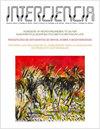学生人格和自我概念对测量与评价课程考试焦虑的影响模型
IF 0.4
4区 综合性期刊
Q4 ECOLOGY
引用次数: 0
摘要
本研究建立了最有意义的因果模型来解释大学生人格和自我概念对测量与评价课程考试焦虑的影响。本研究采用相关研究设计。参与者由150名使用多阶段抽样程序抽取的学院教育的最后一年级本科生组成。工具名称:学生人格特质问卷(SPTQ);采用学生自我概念问卷(SCQ)和学生考试焦虑问卷(STAQ)进行数据收集。应用WarpPls软件对数据进行SEM-PLS分析。结果为解释大学生人格和自我概念对测量与评价课程考试焦虑的影响提供了一个有意义的因果模型。该测量模型具有较高的效度和信度。结果进一步表明,12条路径对模型中的内生变量有显著的直接影响。大多数间接路径对内生变量无显著影响。建议大学生培养积极的人格特质和自我概念,以降低他们的考试焦虑水平。本文章由计算机程序翻译,如有差异,请以英文原文为准。
Modelling of Students` Personality and Self-concept on their Test-Anxiety towards Measurement and Evaluation course
This study established the most meaningful causal model for explaining the influenceofundergraduate students’ personality and self-concept on their test-anxiety towardsmeasurement and evaluation course. We adopted correlation research design in conductingthe study. The participants consist of 150 final year undergraduate students in the FacultyofEducation drawn using multistage sampling procedure. The instruments titled: Students’Personality Trait Questionnaire (SPTQ); Students’ Self-Concept Questionnaire (SCQ), andStudents Test-Anxiety Questionnaire (STAQ) were used for data collection. Datawereanalyzed using SEM-PLS applying the WarpPls software. Results generated a meaningful causal model for explaining the influence of undergraduate students’ personalityandself-concept on their test anxiety towards measurement and evaluation course. Themeasurement model showed a high level of validity and reliability. Results further showedthat 12 paths had a significant direct influence on the endogenous variables in the model. Most indirect paths showed no significant influence on the endogenous variables. It wasrecommended that university students form positive personality traits and self-concept toreduce their test-anxiety level.
求助全文
通过发布文献求助,成功后即可免费获取论文全文。
去求助
来源期刊

Interciencia
综合性期刊-生态学
CiteScore
0.80
自引率
25.00%
发文量
1
审稿时长
4-8 weeks
期刊介绍:
Interciencia is the monthly multidisciplinary publication of the INTERCIENCIA Association. It is dedicated to stimulate scientific research, its humanitarian use and the study of its social context, specially in Latin America and the Caribbean and to promote communication between the scientific and technological communities of the Americas.
Interciencia has been published uninterruptedly since 1976. Its Founding Director, Marcel Roche (endocrinologist and sociologist of science) was editor until 2008, and thereafter Miguel Laufer (neurobiologist) has been in charge. It has been included since 1978 in the Science Citation Index and other international indexes, and since 2008 it maintains an open access electronic version with material from 2005 onwards.
The priority areas of the journal, without exclusion of other areas, are Agronomy, Arid Lands, Food and Nutrition, Biotechnology, Ecology and Environment, Energy, Innovation and Technology Transfer, Marine Resources, Non-renewable Resources, Science Education, Science Policy, Study and Sociology of Science, and Tropical Forests.
Interciencia publishes in Spanish, Portuguese and English research and review articles, communications and essays, all of which are subjected to peer review. Additionally, it includes non-refereed sections such as Editorial, Letters to the Editor, Open Town Hall, Book Reviews and Upcoming Events.
All the material submitted to the journal for publication and accepted by the Editorial Committee in view of its quality and pertinence is subjected to review by peer specialists in the corresponding fields of knowledge. Neither the INTERCIENCIA Association, nor the journal or the institutions to which the authors belong carry responsibility for the contents. Signing authors are responsible for the material published under their names.
 求助内容:
求助内容: 应助结果提醒方式:
应助结果提醒方式:


